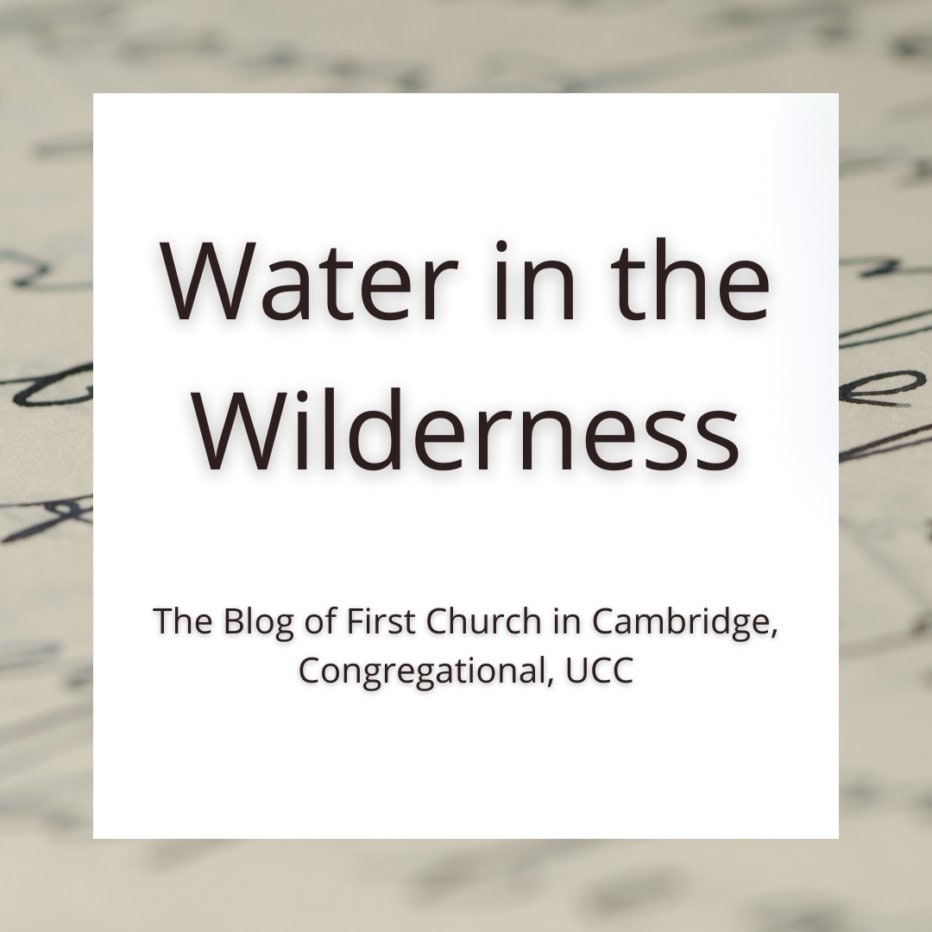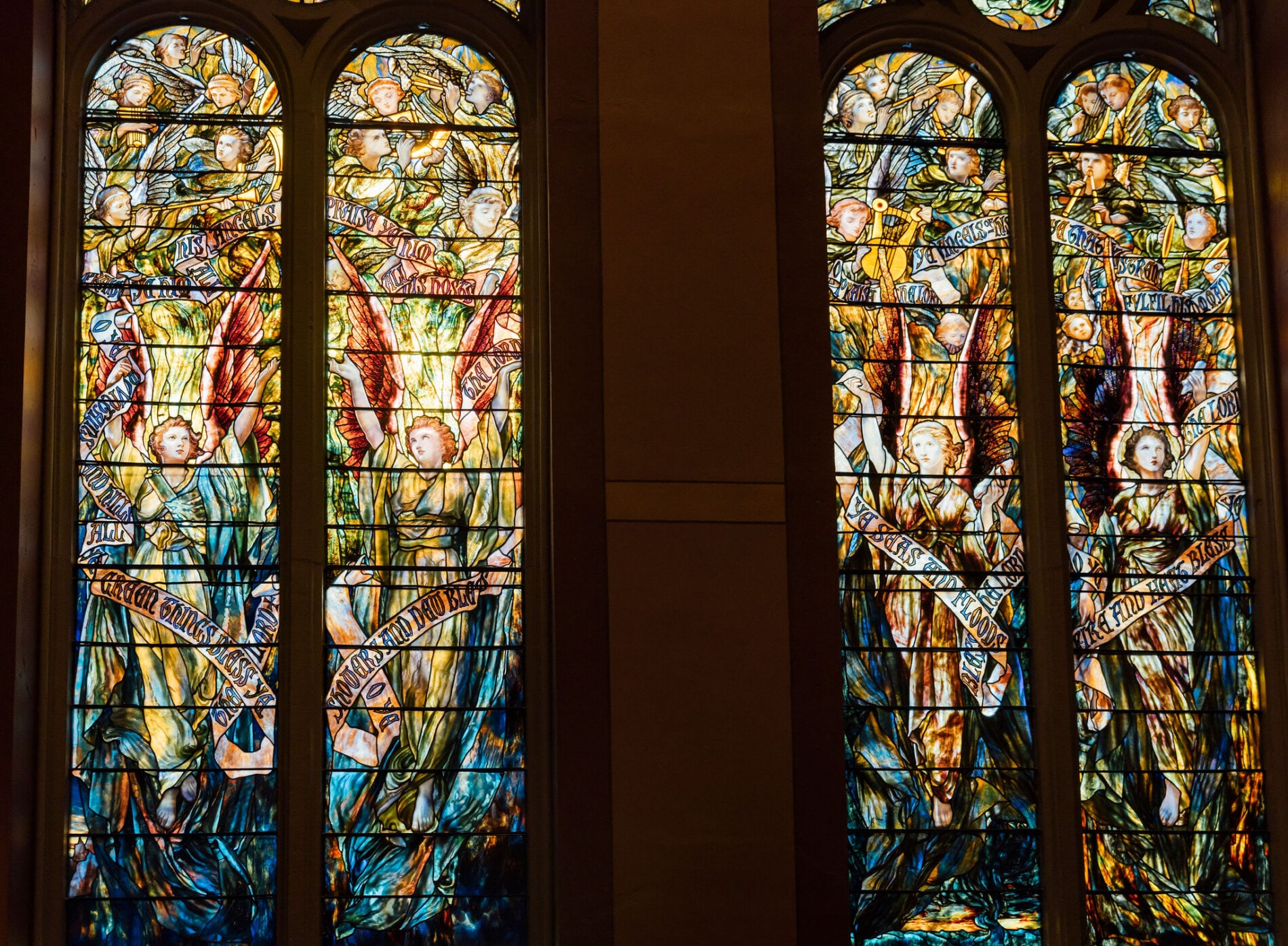
Reparations as Spiritual Practice
This week’s blog post is by Kindle Williams, a member of our Exploring Reparations Small Group
Folks at FCC are well-aware that the Black, brown, indigenous, and otherwise marginalized siblings among us have faced struggles in life, not just due to discrimination in the present day, but also arising from historical broken promises. Many of these siblings’ recent ancestors had their land, work, wages, and lives stolen for entire lifetimes in the name of building this country. In addition to the immediate horrors of slavery, lynching, land theft, and disenfranchisement during those times, all of this led to a lack of inheritance for subsequent generations of Black and Native Americans, and policies which have continued to make it difficult for many folks to build wealth, access resources, and live a truly free life in this country.
First Church, it is not enough to simply know these things. We must take action.
A wrong has been done, and it is our job – our moral imperative – to repair that wrong. Yes, I’m here to talk about Reparations.
In July of 2020, I joined our Faith & Life Group on Exploring Reparations. This was a group born out of not only the tumult and activism of the summer of George Floyd protests, but also out of the previous several years of First Church documenting and seeking to memorialize our own history with slavery. Over the course of nearly 2 years in this Faith & Life group, we have grappled with defining reparations, understanding the need for it. Then we looked at not only national questions of what reparations should look like, but also what it would mean to take a personal and even spiritual approach to repairing past wrongs. We read articles advocating for reparations; we learned about attempts by local governments, universities, and churches to participate in reparative actions; and slowly, we began to form our own ideas of what reparations would look like for us.
One of these ideas led to the formation of a Reparations Fund at First Church, which has now been collecting contributions since June 2021. This fund is in the process of being administered by a Collective of local residents from communities and backgrounds affected by the sorts of oppression this fund is set up to remedy. A big lesson for our group in establishing this fund was the idea of Relinquishment: it is not ours to dictate where the money goes or how it is used. Our only role is to make it available and to trust that the Collective will know best where to direct the resources. After all, this wealth is not rightfully ours – had it been returned to our siblings’ ancestors in the past, or never stolen in the first place, we never would have had the grounds to use it or make decisions over it.
Another big idea we touched on through the Reparations Faith & Life Group was a particular spiritual aspect of reparations: relationship-building. This is the long-term investment in building relationships with other individuals (and even whole churches), to right another wrong of history – segregation – which leaves its nasty marks on both Black and Indigenous as well as White communities to this day. Folks at First Church have described ways in which they are putting effort into overcoming these barriers and healing these societal wounds, such as participating in prayer calls with our predominantly-Black sister churches and uplifting talented and hard-working Black folks in their respective industries using their own social and financial capital. For me, the long-term investment and the social challenges of this aspect of reparations seem much more challenging to address than the purely financial aspects. At the same time, successfully overcoming these hurdles and building these bonds is all the more rewarding.
As for me, because I see reparations as a moral imperative, I cannot in good conscience go about my life without working, on some baseline level, toward paying off this long-term debt incurred by my ancestors. That’s why I give recurring donations – a set portion of my income – to our Reparations Fund. Like a tithe, I treat this money as if it were not my own – because in truth, it is not. If it is in your heart to do so, I would strongly encourage others to join me in this commitment. In addition to this recurring payment, I’ve also found smaller ways to help whenever I feel prepared to give from a position of abundance: for instance, supporting Black business owners and/or donating to Black folks in need through platforms like Miiriya (an Amazon/Etsy alternative for exclusively Black-owned businesses, with an additional mutual aid feature). Or perhaps through giving to folks via the #SettlerSaturday hashtag on Twitter, whereby folks whose ancestors colonized this land can give back to our indigenous siblings in need.
Beyond even this, I have begun to view other aspects of my life through a lens of Reparations, with an eye toward making choices that restore life and do not perpetuate historical injustices. For instance, I’m moving to the San Francisco area soon – and rent is ridiculous. What does it mean that my partner and I are willing to pay upwards of $4000/mo in rent? How does our willingness to do this affect the housing market, which has already pushed so many people out of the Bay area, forcing folks to move to the suburbs and commute for hours, or else leave the state where they grew up? How can my choice to live in more-dense housing help out with these trends? How can I use my voice when I get there to advocate for more-dense, public-transit-adjacent, climate-friendly, affordable housing? Or in another instance – I have heard recently of many native Hawaiians crying out for tourists to stop visiting Hawaii, in light of ridiculous increases in cost of living, and a tourism economy that rarely benefits indigenous folk (to say nothing of how the US Navy just months ago poisoned 20% of Honolulu-area freshwater supplies). Instead, they ask for folks on the mainland to purchase from indigenous Hawaiian-owned businesses. Am I willing to forgo a prototypical “dream vacation” in order to respect these siblings’ wishes and maintain their land? I am. We have to be willing to make actual sacrifices and uncomfortable decisions in order to repair. Even as I say this, it seems silly – because no amount of disappointment at a missed vacation opportunity could ever compare to the upheaval and generational trauma of colonization.
Some say the riches of this world are not for us as Christians. On an eternity timescale, this is very true. But more pressingly, in a very real, accounting sense: for White folks in this country, our wealth is not our own! Our money, our time, our land, our level of education – these are all resources that are, in part, gotten through the historical oppression of others. This is not a fact intended to inspire guilt, but to inspire action. We can help by giving these resources back. But just know – the debt is so large that it will not be paid in our lifetimes, so be prepared for a lifelong commitment. Will you join us in this spiritual journey to repair past wrongs?
Kindle Williams
